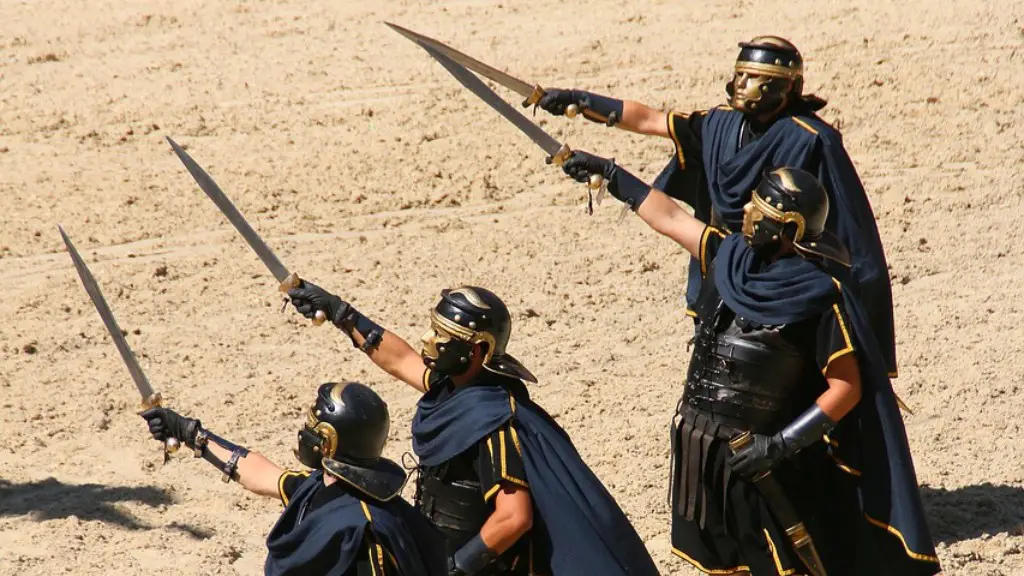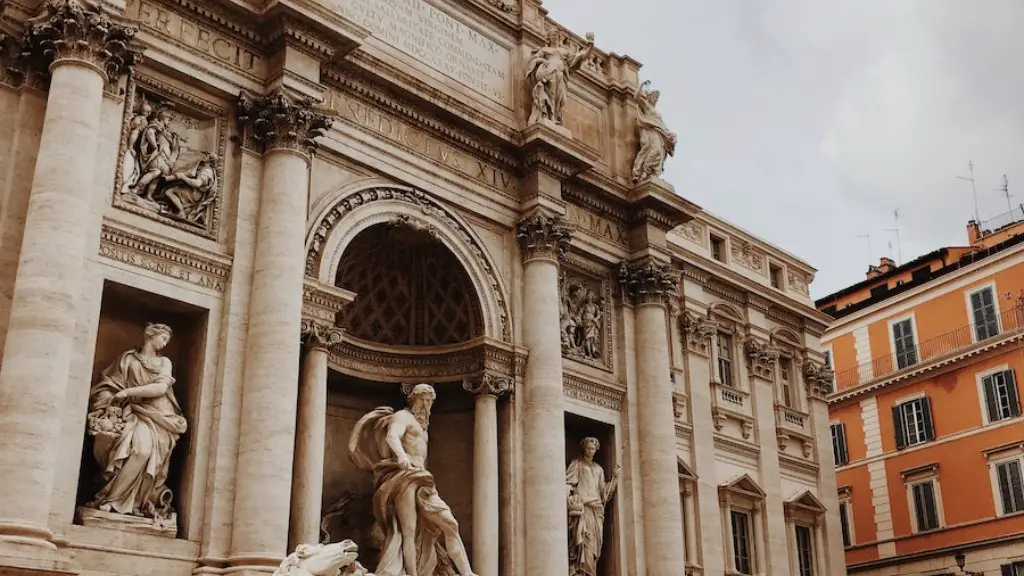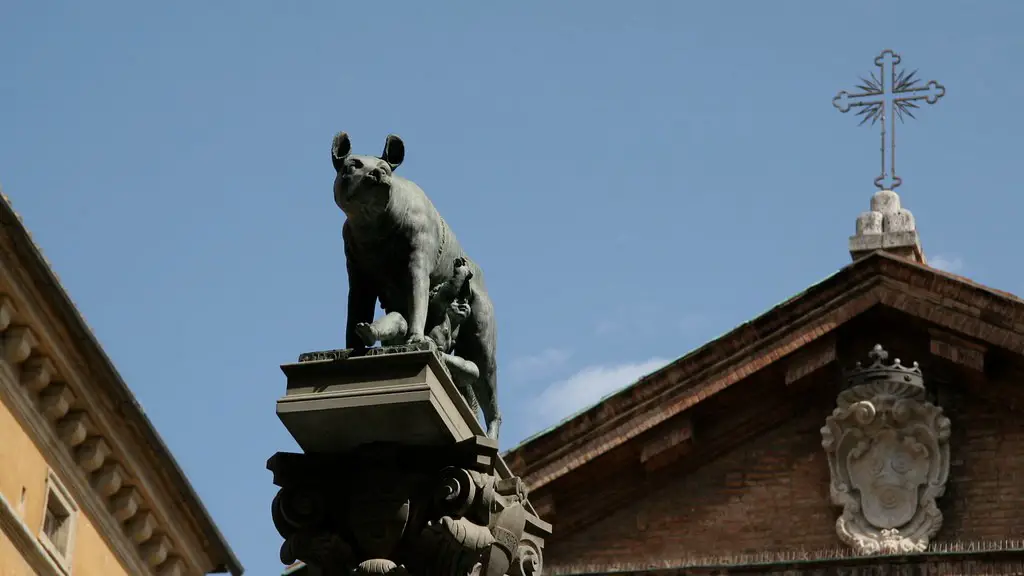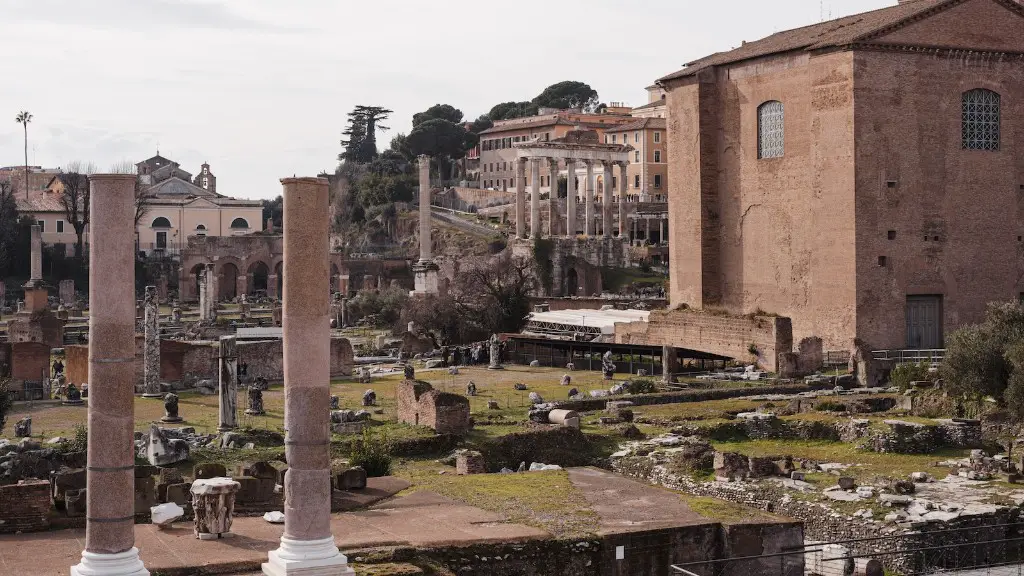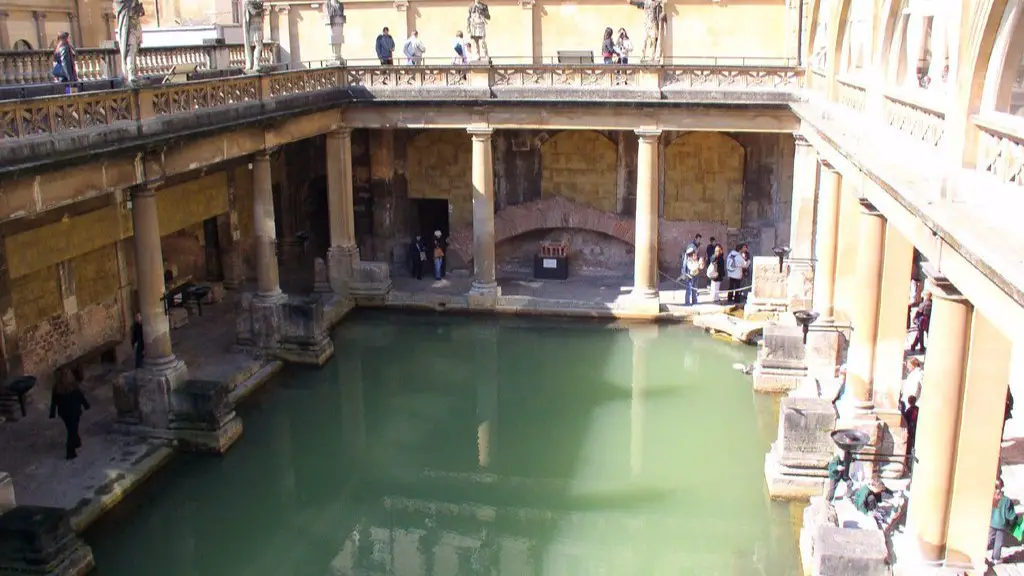The patron-client system was an integral part of Ancient Rome. Clients were usually lower-status citizens who depended on the patronage of a more powerful person, known as their patron. This system was widespread and important in Roman society, and it still affects us today. The patron-client system functioned in two main ways: relations between individuals and power structures in the government and politics.
In its simplest form, the patron-client system refers to the relationship between an upper-class person and their client, who was of a lower social class and was dependent on their patron for resources. The patron was expected to provide help to their clients in exchange for loyalty – the client would vote or serve in whatever way their patron wanted. This often involved a kind of gift-giving or favors for certain services. The client was also expected to pledge their allegiance to their patron, even in dangerous situations. This type of relationship was especially common in rural areas where people needed the help of a local patron to protect them and provide resources.
The patron-client system was also an important feature of the Roman political system. The city of Rome was divided into districts, and each district had a patron who was responsible for providing resources and protection to the citizens of their district. This patron had power over their area and also had influence in other parts of the government. This patron-client relationship allowed powerful individuals to wield significant influence in both the government and political life of Rome.
The patron-client system had its benefits and drawbacks. On the plus side, the system provided security and resources to those who needed it and enabled the wealthy to maintain their power. However, it was also a way for the wealthy to exploit the poor. Wealthy patrons often demanded favors from their clients in exchange for help, and this could lead to a loss of freedom and autonomy for the clients.
The patron-client system has had lasting implications for modern societies. It has shaped the structure of government and politics in many countries, including the United States. The Founding Fathers of the United States drew from Roman models when designing the new government, and some aspects of the patron-client system, such as loyalty and reward for services, have remained part of our political system.
Impact on Economy
The patron-client system had a significant impact on the Roman economy. Patrons were expected to provide economic assistance to their clients in exchange for loyalty and service. This could take the form of loans, housing, food, goods, or money. Clients could also rely on their patrons to intervene in legal disputes and provide protection. This form of economic support was especially beneficial to the poor, who otherwise lacked access to financial resources.
The patron-client system could also lead to economic instability. Wealthy patrons often lent money to their clients in exchange for their loyalty, creating a dependency. This could lead to long-term debt and an over-reliance on the patron for financial assistance. This could be problematic for the patron and the client, as the patron was often unable to collect debts and the client was unable to pay back their patron.
The patron-client system allowed a few wealthy individuals to have a disproportionate amount of wealth and power. This led to wealth inequality, as the patrons became increasingly wealthy and the clients remained poor. This concentration of wealth and power in the hands of a few created an imbalance in the Roman economy that persists today.
Patronage and Art
The patron-client system was also important in the Roman art world. Patrons provided financial and material support to artists, writers, musicians, and other creatives. This support allowed these individuals to pursue their creative endeavors and produce works that were significant to Roman culture.
The patron-client system provided financial stability to many artists and enabled them to dedicate their lives to producing works of art. However, it also created an unhealthy dependency between the patron and the artist. The patron had total control over their creatives and could influence the creative process. This could lead to works of art that reflected the views of the patron, rather than the goals of the artist.
Despite its flaws, the patron-client system was an important part of Roman culture. It had a significant impact on Roman politics, economics, and art. It has also had a lasting impact on modern societies, as many of its features are still seen in politics and economics today.
Legacy of the System
Despite its shortcomings, the Patron-Client system has had an important influence on modern society. The idea of patronage and loyalty, as well as its impact on wealth inequality, are still relevant today.
The Roman system of patronage has been adapted in many ways throughout history. From the royal courts of old, to modern-day politicians offering favours to their constituents, patronage exists in many forms. In recent years, it has also taken on a more modern form, with celebrities and companies offering rewards or special access to those that pledge their loyalty.
The patron-client system has demonstrated its usefulness as a way of establishing relationships and forming networks. Social media networks and online platforms have harnessed this ancient system to create a new form of online patronage. Platforms such as Patreon, which offers rewards to people in exchange for loyalty, are part of this new era of patronage.
The patron-client system still has an important role to play in Rome and beyond, and its legacy will likely continue to shape the future of politics, economics, and art.
Modern Patronage in Politics
The influence of the patron-client system is evident in modern-day politics. Political candidates rely on support from their constituents and use rewards such as access to funds, endorsements, or exposure to entice their supporters. This type of patronage has become an important part of the political process, encouraging loyalty and reinforcing power structures.
Political patronage has had certain benefits, such as empowering certain constituencies and creating greater access to resources and opportunities. However, it can also be used to manipulate and exploit those who depend on their patrons for support. The patron-client system can lead to corruption and an unfair distribution of resources, creating an atmosphere of inequality and favoritism.
Despite its flaws, it is clear that the patron-client system still has a place in modern politics. As long as loyalty and power are important components of the political process, the patron-client system will remain a significant force in politics.
Criticisms
The patron-client system has been the target of much criticism, both in Ancient Rome and in modern society. Critics argue that the patron-client system creates unhealthy dependencies and reinforces unequal power structures, while also leaving clients vulnerable to exploitation and manipulation.
Critics also point out that the patron-client system can lead to a lack of autonomy, as clients become reliant upon their patrons. The patronage relationship can also limit the freedom of the client, leading to a loss of independence and a reluctance to express dissenting opinions.
Furthermore, critics argue that the patron-client system allows those with wealth and power to take advantage of the less privileged. The wealthy are able to use their patronage to amass resources and influence, while the poor only have their loyalty to offer. This can lead to imbalances in wealth and create a lack of equality in society.
The patron-client system has long been a part of Ancient Rome and modern society. Despite its flaws, it has been an important part of Roman and modern politics, economics, and art. Its influence can still be felt in our society, and it is likely that it will continue to shape the future of our world.
